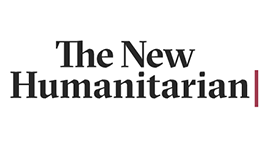Digital Library - A manual for knowledge exchange
The concept of the digital library was a natural extension of the online concept that brought all participants in an online group server we built. We created different channels to organize the contents of the program, important tasks to be done before certain lectures and of course, channel to accommodate interpersonal communication and fun. With Zoom being established as the preferred choice for online teaching program, sharing screens and posting links has become a natural part of remote learning. For this reason we created the digital library- a place where sharing relevant information and further reading recommendations became a repository of the program to which any participant can come back to at any time. In this library the group shared links to scientific papers, journalistic investigations, open source books, movies, documentaries and many more. We also specifically asked all the lecturers to give us their recommendations and collected links and information shared during the sessions.
General literature
We collected some general sources that were closely related to the overall topic of the school- opinion forming processes in digital democracies.
"Social Media and Democracy" is a strongly recommended free online book thta Professor Möller and Professor Schmuck suggested.
Another two geat reads came from our keynote speaker Melanie Vogel who spoke about freedom of speech as a fundamental civil right and obligation.
The Information: A History, a Theory, a Flood
The Shallows: What the Internet Is Doing to Our Brains
Recommendations from the journalistic field
Especially interesting were the websites our Berkeley lecturer Mara Kardas-Nelson shared with us offering independent journalistic sources which cover topics that are not always on the agenda of traditional US American media.
If you are interested in investigative journalism, these sources can be helpful:
International Consortium of Investigative Journalists
Global Investigative Journalism Network
European Journalism Centre
Organized Crime and Corruption Reporting Project
Especially interesting were the websites our Berkeley lecturer Mara Kardas-Nelson shared with us offering independent journalistic sources which cover topics that are not always on the agenda of traditional US American media. Mara has been working for a long time in Sierra Leona and reported on micro-finance projects and their local impact.
Africa is a Country
The New Humanitarian
Some non-ficition recommendations:
Behind the Beautiful Forevers: Life, Death, and Hope in a Mumbai Undercity by Katharine Boo
King Leopold's Ghost by Adam Hochschild
Fast Food Nation by Eric Schlosser
